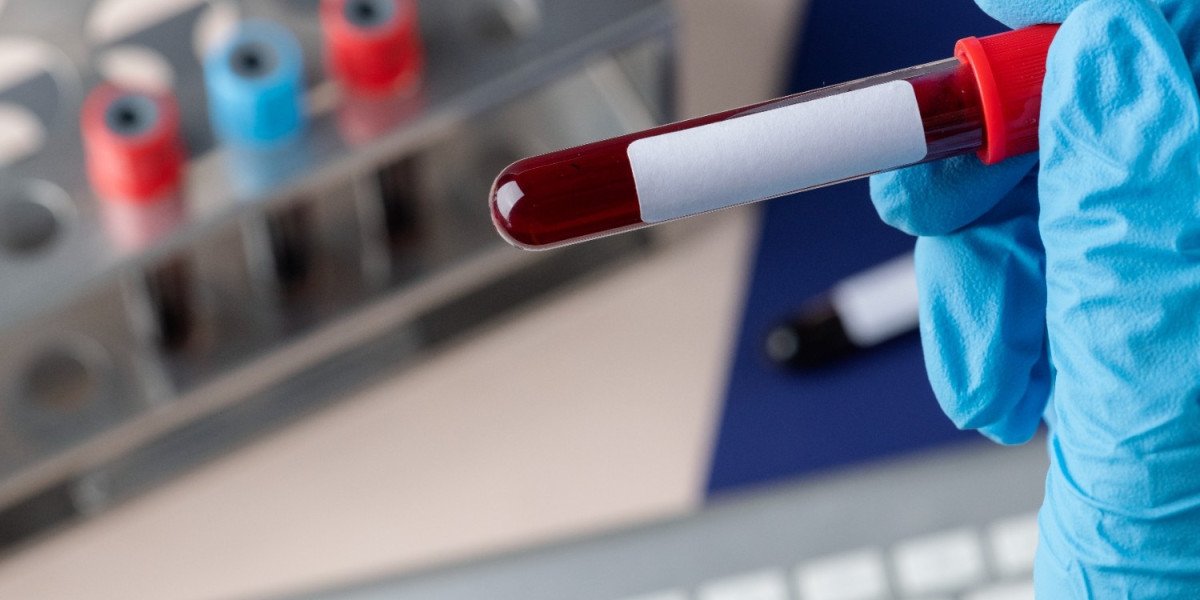Maintaining good health requires regular monitoring of vital body functions. Among these, blood sugar levels play a significant role. A fasting blood sugar test is a simple yet powerful diagnostic tool to measure glucose levels after an overnight fast. It provides valuable insights into your health, particularly in managing or preventing diabetes.
What Is a Fasting Blood Sugar Test?
A fasting blood sugar test measures the glucose concentration in your blood after at least 8 hours of fasting. It helps determine how well your body regulates sugar and identifies potential issues like diabetes or prediabetes.
This test is often part of routine health checkups and is crucial for people with risk factors such as obesity, family history of diabetes, or a sedentary lifestyle.
Why Is a Fasting Blood Sugar Test Important?
- Early Detection of Diabetes
- Diabetes often develops silently, showing no symptoms until complications arise. A fasting blood sugar test can reveal abnormalities early, allowing for timely intervention.
- Monitoring Prediabetes
- Prediabetes is a condition where blood sugar levels are higher than normal but not yet diabetic. Regular testing can track changes and guide lifestyle adjustments to prevent progression to diabetes.
- Evaluating Overall Health
- Elevated blood sugar levels can affect your heart, kidneys, and nerves. Routine fasting blood sugar tests help assess your risk for these complications.
- Tracking Treatment Progress
- For individuals already diagnosed with diabetes, this test provides a clear picture of how well medications, diet, and exercise manage blood sugar levels.
- Guiding Lifestyle Changes
- Test results can highlight the need for healthier dietary choices, increased physical activity, or stress management techniques to improve overall well-being.
Who Should Get a Fasting Blood Sugar Test?
- Adults Over 45 Years
- Age is a risk factor for type 2 diabetes. Routine testing is recommended for individuals over 45, even without symptoms.
- People with Risk Factors
- Those with obesity, a family history of diabetes, or high blood pressure should undergo regular testing.
- Pregnant Women
- Gestational diabetes can affect both mother and child. Fasting blood sugar tests are essential during pregnancy to monitor glucose levels.
- Individuals with Polycystic Ovary Syndrome (PCOS)
- PCOS increases the risk of insulin resistance. Regular testing helps in managing associated health risks.
How to Prepare for a Fasting Blood Sugar Test
- Fasting Duration
- Ensure you fast for at least 8-10 hours before the test. Avoid consuming food or beverages other than water.
- Medications
- Inform your healthcare provider about any medications you take, as some can affect blood sugar levels.
- Hydration
- Drink plenty of water to stay hydrated, as dehydration can impact test accuracy.
- Avoid Stress and Exercise
- Physical exertion or stress before the test can cause temporary blood sugar fluctuations.
Interpreting Fasting Blood Sugar Test Results
- Normal Range
- A fasting blood sugar level between 70 and 99 mg/dL is considered normal.
- Prediabetes
- Levels between 100 and 125 mg/dL indicate prediabetes, signaling the need for lifestyle changes.
- Diabetes
- A reading of 126 mg/dL or higher on two separate occasions confirms a diabetes diagnosis.
- Low Blood Sugar
- Levels below 70 mg/dL may indicate hypoglycemia, requiring medical attention to identify the underlying cause.
Tips for Maintaining Healthy Blood Sugar Levels
- Adopt a Balanced Diet
- Focus on whole grains, lean proteins, healthy fats, and plenty of fruits and vegetables. Limit sugary and processed foods.
- Stay Active
- Engage in at least 150 minutes of moderate exercise weekly. Activities like walking, cycling, or yoga can help regulate blood sugar.
- Manage Stress
- Practice mindfulness, meditation, or breathing exercises to reduce stress, which can impact glucose levels.
- Get Adequate Sleep
- Poor sleep can disrupt hormone levels, affecting your body’s ability to regulate blood sugar.
- Regular Monitoring
- Schedule routine fasting blood sugar tests to track your health and detect any abnormalities early.
Choosing the Right Diagnostics Centre in Pune
When it comes to accurate and reliable fasting blood sugar tests, selecting the right diagnostics centre is crucial. Look for facilities with:
- Qualified Technicians
- Trained professionals ensure accurate sample collection and testing procedures.
- Advanced Technology
- Modern equipment and updated testing methods deliver precise results.
- Convenient Locations
- Opt for a centre close to your home or workplace for hassle-free access.
- Home Collection Services
- Many centres now offer blood sample collection at home, adding convenience and saving time.
Conclusion
A fasting blood sugar test is more than just a diagnostic procedure; it’s a gateway to better health. By regularly monitoring your blood sugar levels, you can take control of your health, prevent complications, and make informed lifestyle choices.
AG Diagnostics offers dependable fasting blood sugar test in Pune. Their skilled team and modern facilities ensure accurate results with a patient-focused approach. Take the first step toward healthier living by scheduling your test today.








